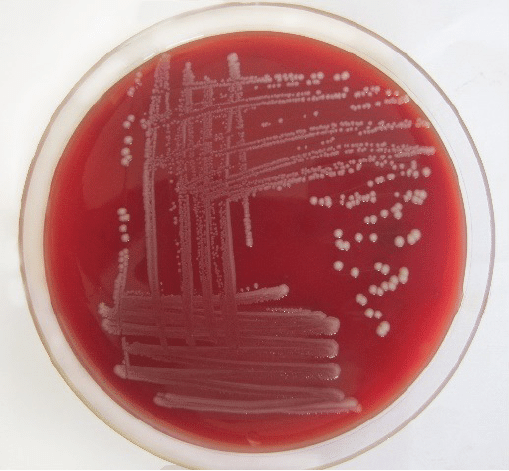The ongoing war in Ukraine has led to not only humanitarian crises but also unexpected health challenges. Recent research from Lund University, Sweden, has highlighted the emergence of pathogenic bacteria that are resistant to all available antibiotics among war victims in Ukraine. These findings, published in the Journal of Infection, have raised alarms about the growing threat of antimicrobial resistance (AMR) on a global scale.
The Discovery of Total Antibiotic Resistance
A year ago, researchers at Lund University discovered strains of bacteria in Ukrainian war-wounded patients that exhibited total antibiotic resistance. These bacteria were found to be resistant to every antimicrobial drug tested. The study’s lead author specifically pointed out Klebsiella pneumoniae—a bacterium resistant to all antibiotics—which poses a particularly severe health risk due to its highly aggressive and virulent nature.
In their latest study, the researchers expanded on their findings by analyzing the infectiousness and virulence of these bacteria. Samples were collected from 141 patients, including 133 adults wounded in the war and eight newborn babies suffering from pneumonia. Alarmingly, 6% of all samples showed total resistance to the antibiotics tested.
Why Is Klebsiella pneumoniae So Dangerous?
Klebsiella pneumoniae is not just resistant but also highly virulent, making it a dual threat. According to the study:

- This bacterium causes infections such as pneumonia, urinary tract infections, wound infections, and sepsis.
- Globally, Klebsiella pneumoniae is linked to 1 in 5 deaths caused by antimicrobial resistance (AMR), underlining its significant role in the AMR crisis.
Kristian Riesbeck, a professor of clinical bacteriology at Lund University, stated, “All the bacteria were shown to carry the genes that are associated with resistance. One-quarter of them were resistant to all available antimicrobial drugs, meaning they were pandrug-resistant.”
This level of resistance makes infections nearly impossible to treat with current medicines, heightening the urgency to address this threat.
The Experimental Findings
To understand the pathogenicity of these resistant bacteria, researchers conducted experiments using mice and insect larvae. They found:
- The most antibiotic-resistant strains of Klebsiella pneumoniae caused severe pneumonia in mice.
- These strains killed insect larvae much faster compared to less-resistant bacteria.
Such results demonstrate that these bacteria are not just surviving antibiotic treatments but are also thriving and causing severe infections.
Moreover, the study revealed that these bacteria have retained a complete set of genes that enhance their ability to infect and spread, despite their antibiotic resistance. Professor Riesbeck remarked, “We have perhaps underestimated bacteria. These strains from Ukraine are equipped with genes that make them both resistant and virulent.”
A Broader Public Health Threat
The presence of pandrug-resistant bacteria in Ukraine raises significant concerns about the spread of such strains to other regions.
- Potential for Global Spread: Without proper isolation and treatment, these bacteria could easily travel across borders, leading to outbreaks in healthcare settings worldwide.
- Risk to Vulnerable Populations: Individuals with weakened immune systems, such as newborns, the elderly, or those with chronic illnesses, are particularly vulnerable to infections caused by these bacteria.
The war in Ukraine has created conditions—such as overcrowded hospitals, limited access to advanced medical treatments, and poor hygiene in conflict zones—that facilitate the proliferation and transmission of these resistant pathogens.
Addressing the Growing AMR Threat
The rise of pandrug-resistant bacteria in Ukraine is part of a larger global crisis of antimicrobial resistance (AMR), which has been recognized as one of the top public health threats of the 21st century.
Strategies to Combat the Spread of Resistant Bacteria
- Improved Infection Control Measures
- Patients infected with pandrug-resistant bacteria must be isolated to prevent the spread of these pathogens in healthcare settings.
- Hospitals and clinics must implement strict hygiene protocols, including handwashing and sterilization procedures.
- Antibiotic Stewardship
- Overuse and misuse of antibiotics in both healthcare and agriculture contribute to AMR. Rational use of antibiotics must be promoted globally.
- Development of New Antibiotics
- Investment in research and development of new antimicrobial agents is critical to combat resistant bacteria like Klebsiella pneumoniae.
- Surveillance and Monitoring
- Global surveillance systems need to track the spread of resistant bacteria, especially in conflict zones where healthcare systems are under strain.
- Global Cooperation
- AMR is a global issue that requires international collaboration among governments, healthcare organizations, and researchers to develop effective solutions.
The discovery of pandrug-resistant bacteria in Ukrainian war victims is a wake-up call for the global healthcare community. Bacteria like Klebsiella pneumoniae, which are both highly resistant and virulent, represent a significant threat to public health, especially in conflict zones and overcrowded hospitals.
The findings from Lund University emphasize the urgent need for proactive measures to prevent the spread of such bacteria. Without swift action, these pathogens could further escalate the global AMR crisis, making previously treatable infections deadly.
As Professor Riesbeck warned, “These bacteria will not disappear over time. If patients are not isolated and treated properly, the infection will continue to spread.” The time to act is now.




